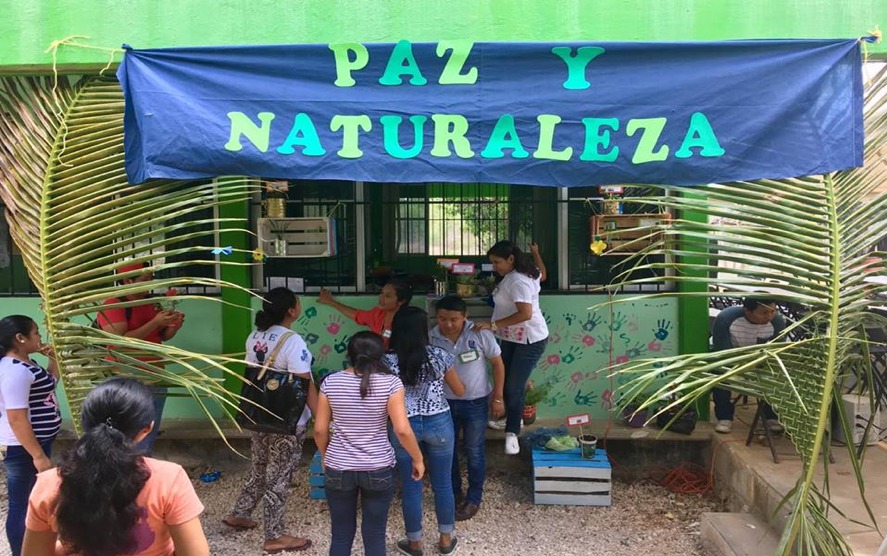To celebrate Indigenous Peoples Day 2018 we are showcasing some fantastic work being done by indigenous youth activists around the world.
Meet Bertha, Mayan Indigenous from Yucatan, Mexico, a university professor of pedagogy, education and Mayan language, who has been conducting workshops on environmental care for children and young people since 2002, using the ancestral narratives of the Popol Vuh, Mayan cultural legacy.
Tell us about your workshops
The Peace and Nature workshops respond to the environmental commitment I acquired in 2001 when I participated at the WET-Mexico Project (Water Education for Teachers) in order to support the preservation of the great natural capital that we still have on the planet. Since then I am convinced that environmental education can promote sustainable development and appreciation for natural resources and improve education.
That is why I have promoted different workshops and educational activities with children and young people in order to weave and strengthen networks of environmental educators in favor of life in a framework of dignity.
The Paz y Naturaleza (Peace and Nature) environmental network follows the principles of popular education and a pedagogy of peace, and its primary objective is to build a free and democratic country, based on knowledge, memory and environmental commitment since it is about being allies who are respectful of nature.
What motivates you to do it?
Caring for nature is something we should do all the time, considering that it is the most real and vital heritage from our ancestors. That’s why, since I was in high school, I had a great concern to promote harmonious and worthy habits of those who are temporary guests of this planet and the wonderful territory of Maya. Beyond activism, I wanted to live and feel new experiences for the benefit of the environment.
We live on a planet that existed before our species, whose main characteristic is its love to host life in a magical way. Land exists independently of those who inhabit it, however, the irresponsible use of resources by humans has put it in danger. It is urgent to stop seeing nature with a profit desire, we must take care and cherish it because that way we also give ourselves the opportunity to live with dignity.
Why is it important for young people to take the lead in this type of activity?
Young people are the opportunity to break the “selfish gene”, a term by Richard Darwins to explain that it is not unusual for one group to dominate another in an unjust way in the history of humanity. On the other hand, the possibility of assuming an ongoing commitment with conservation as living beings depends on others to coexist.
Young people as leaders can channel other young people towards a commitment to a dignified life, to trust again and make us valuable people for nature. It is time to go forward, knowing that being human, like any other organism, is to be a natural being.
What would you like youth around the world to do with your stories?
Disseminate my experience, establish environmental collaboration actions for a community with more young people, establish a global network in which our experiences become an initiative to articulate digital learning communities, understanding the possibility of expanding experiences of environmental impact.
Build a global network of environmental activists in order to consolidate a space for participation, debate and international consultation. So, start thinking about environmental education from our own processes of application, appropriation and environmental reinvention.
Thanks to Thalia Castillo for pulling this interview together
